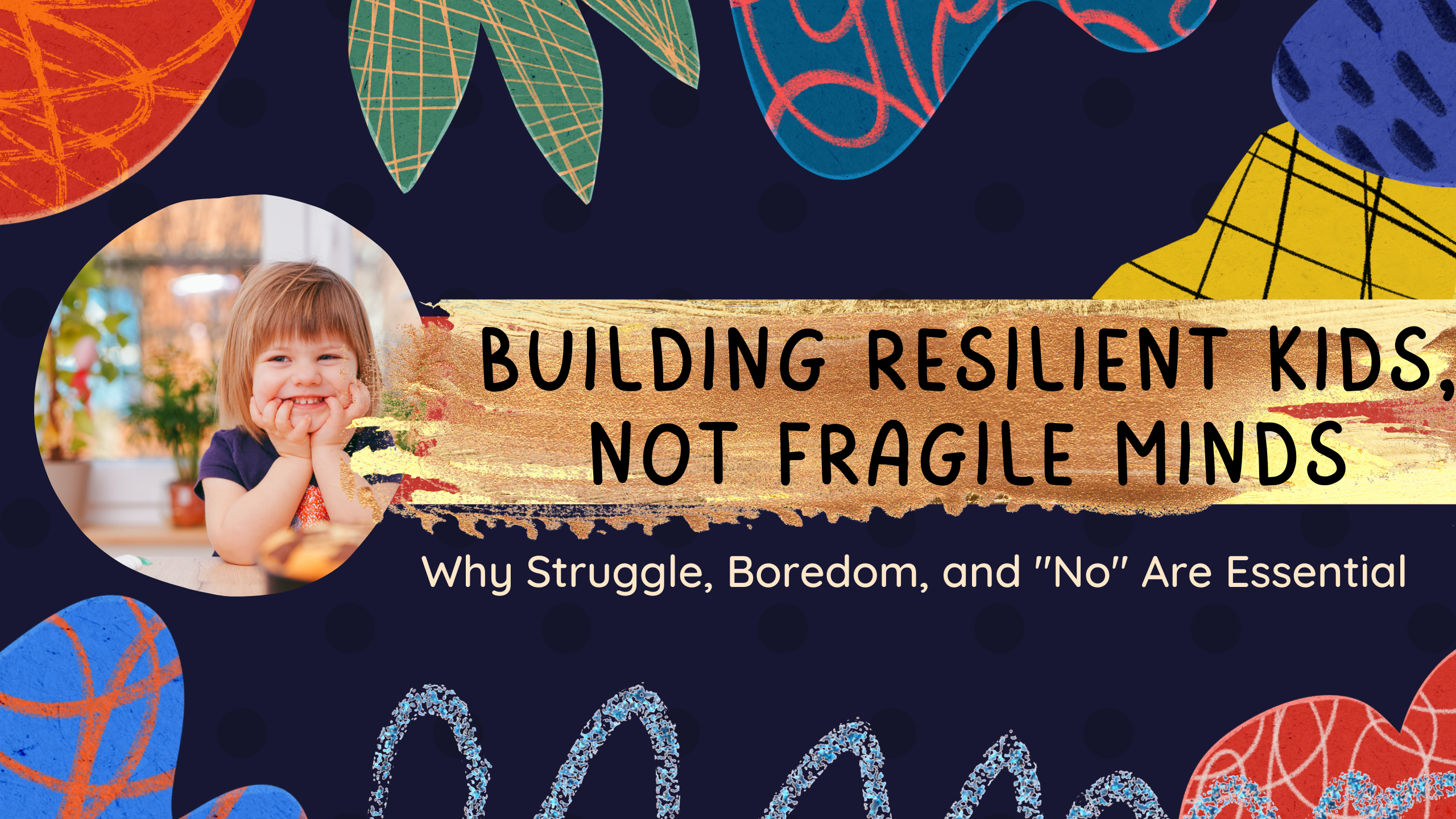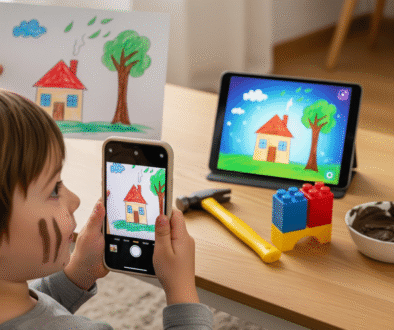
Building Resilient Kids not Fragile Minds
here was a time when children learned by doing, failing, and trying again. They forgot their lunchbox? They learned to be responsible. They were bored? They found something to do. They made a mistake? They faced consequences. But today, many parents rush to shield their kids from the smallest discomforts—bringing forgotten books, solving every problem, buying love with toys and gadgets, and saying “yes” just to avoid conflict.
And speaking of boredom—have you noticed how often kids say, “I’m bored” these days? I always wonder—do they even understand what that means? Are they truly feeling bored, or is it just something they say because they’re used to instant entertainment? Whatever it is, my answer remains the same: “I wonder what you’re going to do about it?” Why should I be the one providing a solution every time? Why should life always be easy?
Then there are those tiny humans who, in their best attempt at a power struggle, declare, “I don’t want to do it.” Well, that’s okay—but I don’t recall giving a choice. Or when they say, “I don’t like this,” I simply reply, “That’s perfectly alright, but we’re going to do it anyway.” Because life isn’t about doing only what we like. Doctors don’t enjoy giving injections, and kids certainly don’t like taking bitter medicine—but both must happen for the greater good. And just like that, children must learn to take responsibility for their actions, whether they like it or not.
The result of making life too easy? We are raising kids who struggle with patience, problem-solving, and emotional resilience. When everything is handed to them, they never develop the skills to handle frustration, setbacks, or even boredom. A child who never hears “no” at home grows into an adult who can’t handle rejection, criticism, or failure.
And what about respect? There was a time when parents and teachers worked together, setting common expectations. Today, a teacher correcting a child can lead to a heated argument—with the child watching. If a child sees their parents disrespect authority, they learn to do the same. Small things—like saying “excuse me,” apologizing when bumping into someone, or greeting elders—used to be absorbed naturally from observing adults. Now, they often need to be taught, because they aren’t modeled at home.
So what’s the solution? Raising mentally strong, empathetic kids isn’t about making life easy for them—it’s about preparing them for reality. Let them struggle a little. Let them feel bored and find their own solutions. Teach them that love isn’t about buying things, but about time, boundaries, and guidance. Because in the end, we aren’t just raising children—we’re shaping future adults.
What do you think? Are we making life too easy for our kids at the cost of their growth? Let’s discuss.


